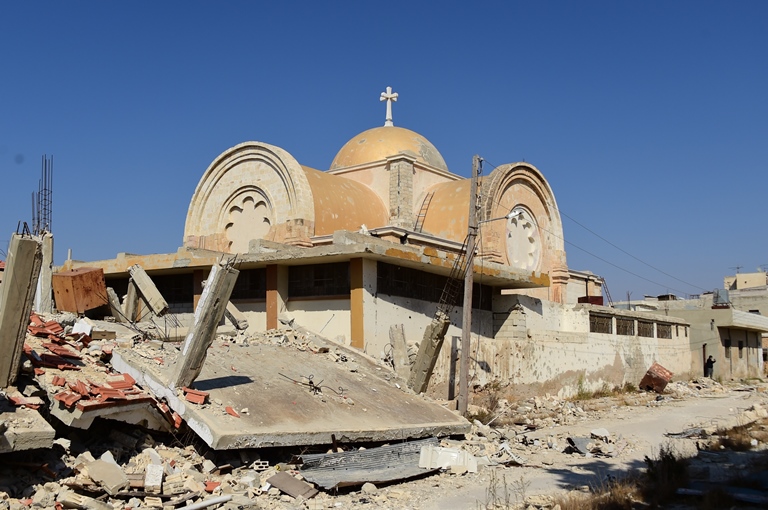|
Reporting from the frontlines in Syria
Thursday, September 29, 2016
"Young people are very afraid to be taken by the army or by the rebels to fight."
Father
Andrzej Halemba, head of the Middle East Projects Department for international
Catholic Charity Aid to the Church in Need, just came back from a fact-finding
mission in Syria. He gave the following account:
Right now everybody is holding their breath
because the situation looks promising, but on the other hand we are facing a
humanitarian crisis of enormous scale. ISIS, Al Nusra and other Al-Qaida want
to destabilize the situation to show that there will be no peace in Syria
without their engagement.
Syria has changed completely in only 5
years. From a rich country, which was enjoying peace, and where business was going
very well, it has turned into a place of destruction.
Now the population of Syria dropped
from 24.5 million to little over 17 million now. Nearly 6 million people are
outside the country. There are over 4.8 million Syrian refugees in the
neighbouring countries and 13.5 million people in need of humanitarian help
inside Syria. Many areas are extremely difficult to reach. Food is very
expensive.
For example, in the area controlled by
the government the price of rice rose from 2010 nearly 250 percent, but in the
rebel areas its price rose 28 times! So if basic food is so expensive, what a
miserable life is it? Over 57 percent of people are not able to find any job.
They live from begging and from humanitarian help. Some 4.6 million people are
in hard-to-reach areas.
First of all, the ruins that you can
see around Damascus. It is a lovely city and still the people refuse to be in
despair there. Despite the difficult situation they try to live a “normal
life”. But the landscape of the surroundings of the city is terrible. When we
went to Homs we had to use side roads because the motorway was blocked by
snipers. The streets are dirty, people are poorly dressed, the prices are very
high and there is a lot of suspicion.

The families are in a dramatic
situation as they can’t sustain themselves. They have no work or are being very
much underpaid. And the displaced people who had to leave their homes – 6.5
million of them to be more precise – need to rent rooms, but the prices of
rentals are enormously high. Without having the income this becomes a big
challenge for them.
Last but not least the question of the
young people who are very afraid to be taken by the army or by the rebels to
fight. They are the most vulnerable, that is why they run away. That is also
why amongst the refugees in Europe there are so many young people.
Very often, without words, the local
people burst into tears, because nobody is helping them. That’s very emotional
for us. They are so grateful. But this help has not only a material aspect. It
gives them so much more: strength through the gesture of solidarity which they
experience. People told me: “Father, it is so important for us that we don’t
feel forgotten.”
Since the
beginning of the war in Syria, which burst out in 2011, Aid to the Church in
Need has supported emergency humanitarian projects and pastoral aid in the
country with more than $14M in support. Last year alone, the organization helped
almost 200,000 people with some form of support.
Remains of St. Elijah parish in Qussair, Diocese of Homs, Syria; ACN photo
|